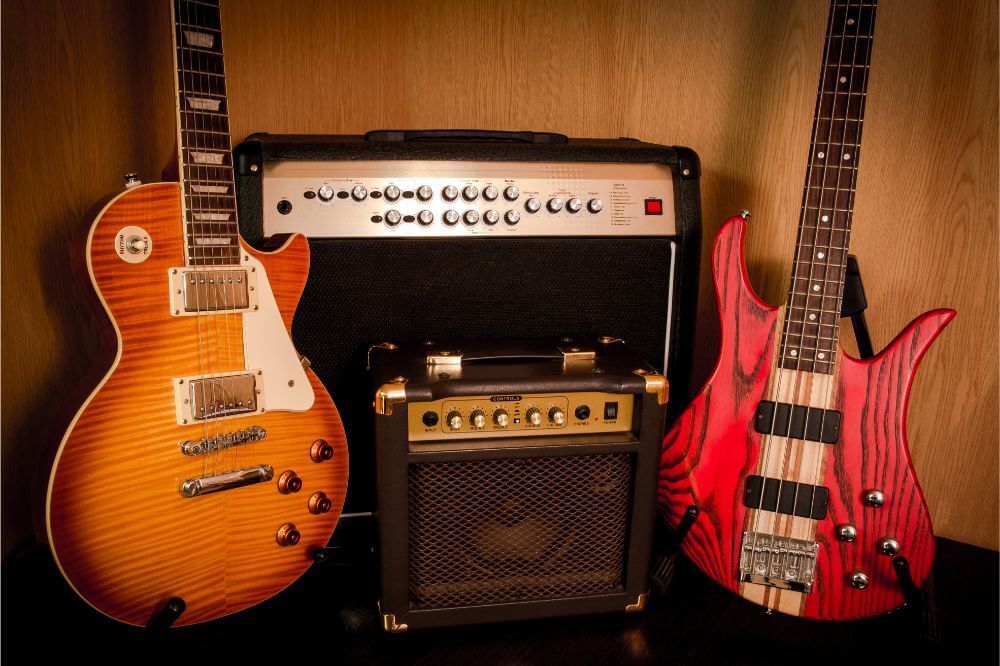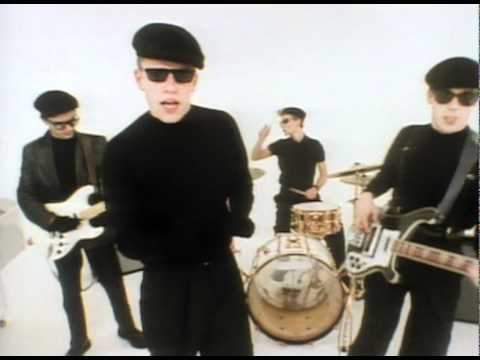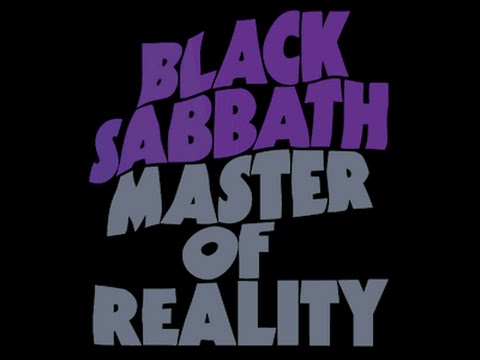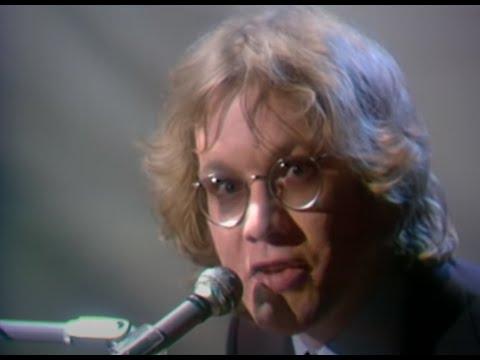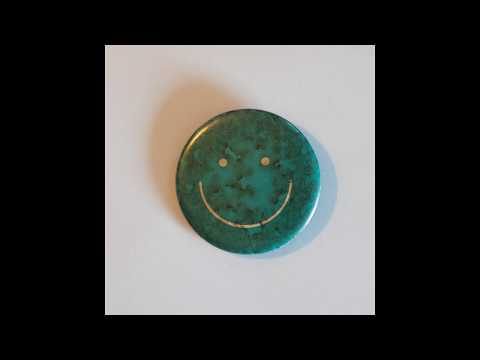If you need to buy an amp and find yourself confused about the difference between guitar amps and bass amps, you’ll enjoy this article.
What Is a Bass Amp?
In music’s colorful history, bass guitar amplification is a pretty “new” concept. Through the ages, basses played in orchestras on the sheer merit of their genius construction. However, with the arrival of rock n’ roll, electric bass guitars with solid bodies appeared on the scene, bringing bass amps with them.
A bass amp is an electronic tool that makes the low notes of a bass guitar more perceptible to the audience. Most amplifiers are designed specifically for bass guitars and other low-pitched instruments. Described in detail: the strings produce audible vibrations. These vibrations are converted to electrical signals by the bass pickups – then the amplifier processes the signals and sends or pushes them to the listeners through speakers as audio.
Interestingly, the human ear notices low frequencies easier since there is more energy transmission.
You could amplify a bass guitar through a regular guitar amp if you’re just starting out for low-cost practicing. Still, these amps can’t handle the lower frequency and could damage the speaker.
For example, if you played a show with your bass through a guitar amp, you’d likely experience some problems.
What Is a Guitar Amp?
A guitar amplifier is similar to the electronic device used for a bass guitar, but it’s designed for higher frequencies, such as an electric or acoustic guitar. It also improves the electrical signal from the pickup on the guitar to produce a clean sound through loudspeakers.
You can also use your guitar amp as a speaker, but it won’t sound as good as a dedicated sound system designed to convey rich, clear tones to the listeners. Playing the bass guitar through a guitar amp could work for casual practice, but it won’t deliver optimal sound quality. Also, if you play very loudly, it could blow up the speaker.
What’s the Difference Between a Bass Amp and a Guitar Amp?
There are fundamental differences between a bass and a guitar amp, mainly a boosted (amplified) response to frequency. Naturally, this requires more power seeing that they have to “push more air.” Said another way, bass amps:
- Have more power
- Need more powerful speakers
- The entire unit is bigger due to the large speakers, and
- Optimizing the EQ (equalization) is different since it suits the lower frequencies better.
A guitar amplifier needs smaller speakers for the higher notes, and the frequencies it moves (or “sends out” to the audience) are not as ‘thick’ as bass notes. Typically, musicians base their decisions of guitar amp purchases on balance between cost and what they need.
An electric guitar’s notes cannot harm a bass amplifier, even if it’s not ideally structured for treble notes. However, you won’t get the same sound quality through a bass amp.

Important to Remember With Bass and Guitar Amps
Make a Difference With Active Pickups
Suppose your bass guitar is active, meaning the pickups are powered; you cannot crank your active pickups through a guitar amp. It could blow the speakers at high volume and certainly won’t sound great.
Distorted Signal When Playing Bass Through a Guitar Amp
It’s important to remember that when you play your bass guitar through a guitar amp, you should aim to avoid distorting the signal since this will most certainly damage the speaker.
Playing a Bass Through a Guitar Amp Is Only Okay Short Term
There’s no serious reason not to play your guitar through a bass amp. Bass amps don’t have any effects to make it necessary. But if you need to do so for a short period, it won’t create too much frustration; it just won’t be ideal if you prefer a clear, unobstructed sound reaching your eager audience.
Can I Use a Bass and Guitar Amp Interchangeably?
It certainly is possible to substitute this gear, but still do so with caution – you don’t want to blow a speaker and suffer the unnecessary expense.
Buying Tips
So, now that you understand everything better, let’s discuss what you should look out for when shopping for your amp.
Buying a bass amp is an expensive excursion. But you can follow your desires and preferences. Everyone’s playing style is not the same, so it stands to reason that what works for one player may not work for another. Still, there are a few things to explore.
EQ Choices
No matter what bass amplifier you buy, most offer various tone potentials through EQ. Most amps have a 3-band EQ that you can select with knobs/buttons from low to high. However, you’ll appreciate your decision if you can buy an amplifier with 4-band EQ or more (for instance, amps with graphic EQ). It goes a long way in a competitive market if you create a tone unique to your style.
The Life of a Gigster
Always consider where you play. If you’re planning on going on the gig trail, you’ll be hauling your amp everywhere. You’ll often find that nightclubs don’t have bass amplifiers. So, you’ll want to consider a bass combo-amp that gives you the amplifier and speaker as a package. Those who prefer playing in the studio would do well in tone with a heavy tube amp in its own cabinet.
Some musicians may wonder if tube sound is genuinely necessary. But they are superb when it makes sense practically–remember that they can be heavy and cost more. Only you can decide if you honestly need the “tube sound.”
Conclusion
In closing, let’s touch on the effect you can get from stompbox pedals or a plugin to shape the tone on the software you use to record. The stompbox has been around since the late 1940s, and they offer terrific opportunities you can explore.
Finally, if budget and experience are not an issue, don’t hesitate and choose an amp you’ll still be thrilled with many years from now.
